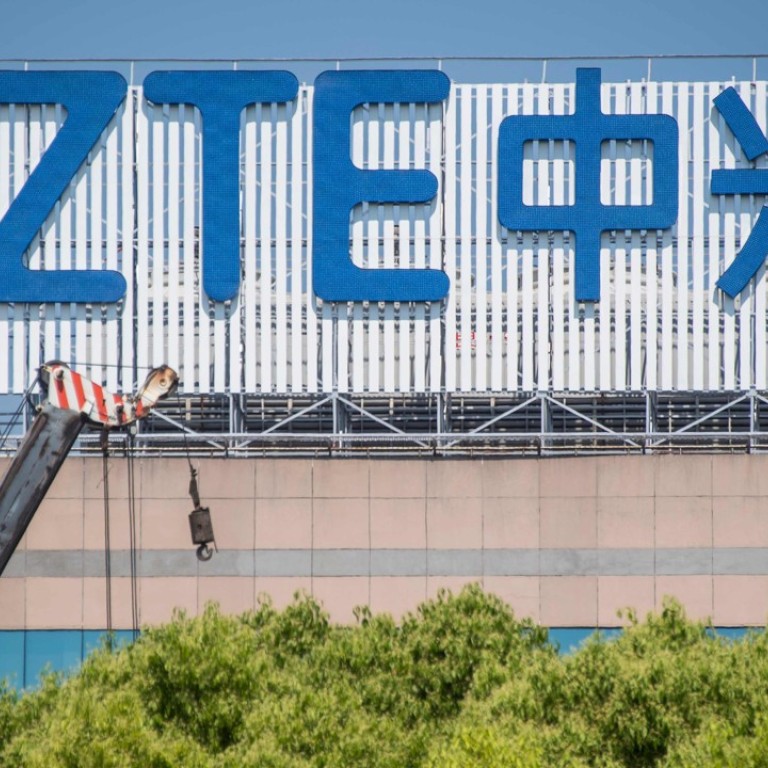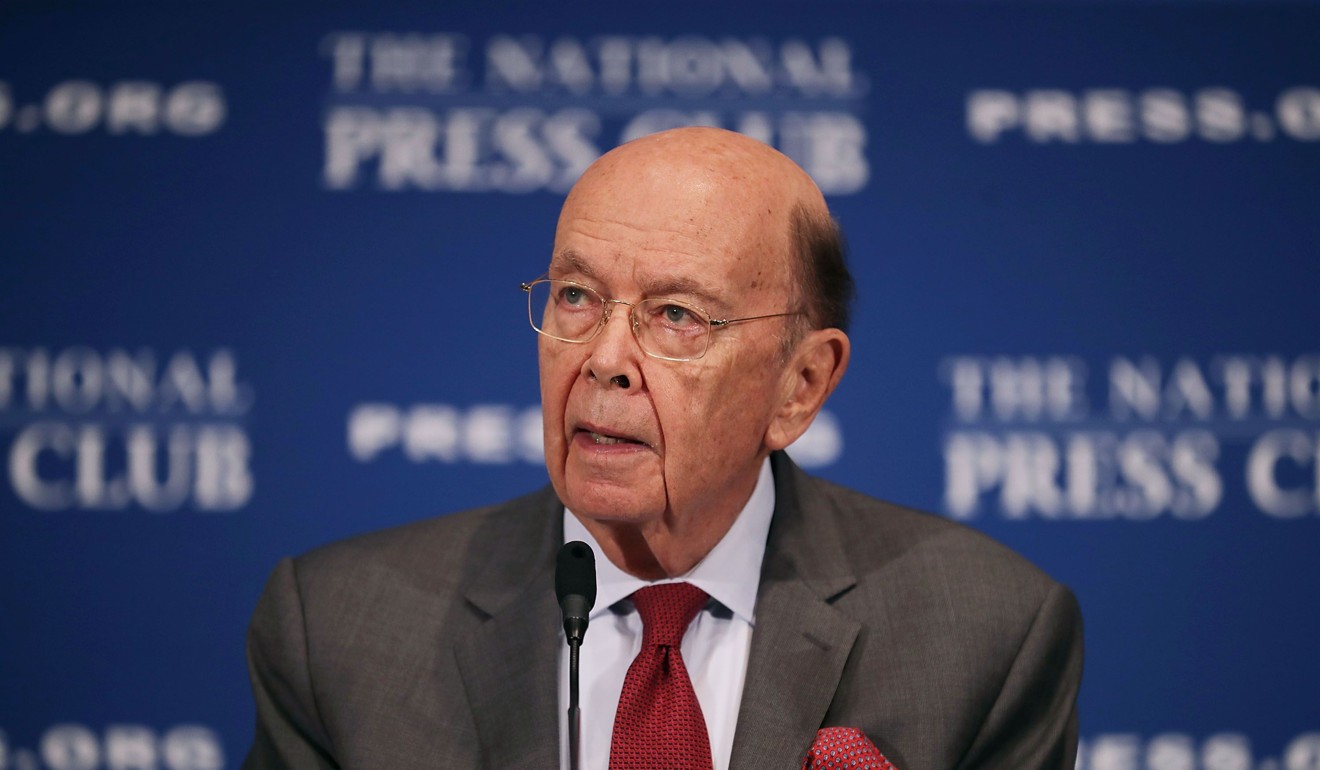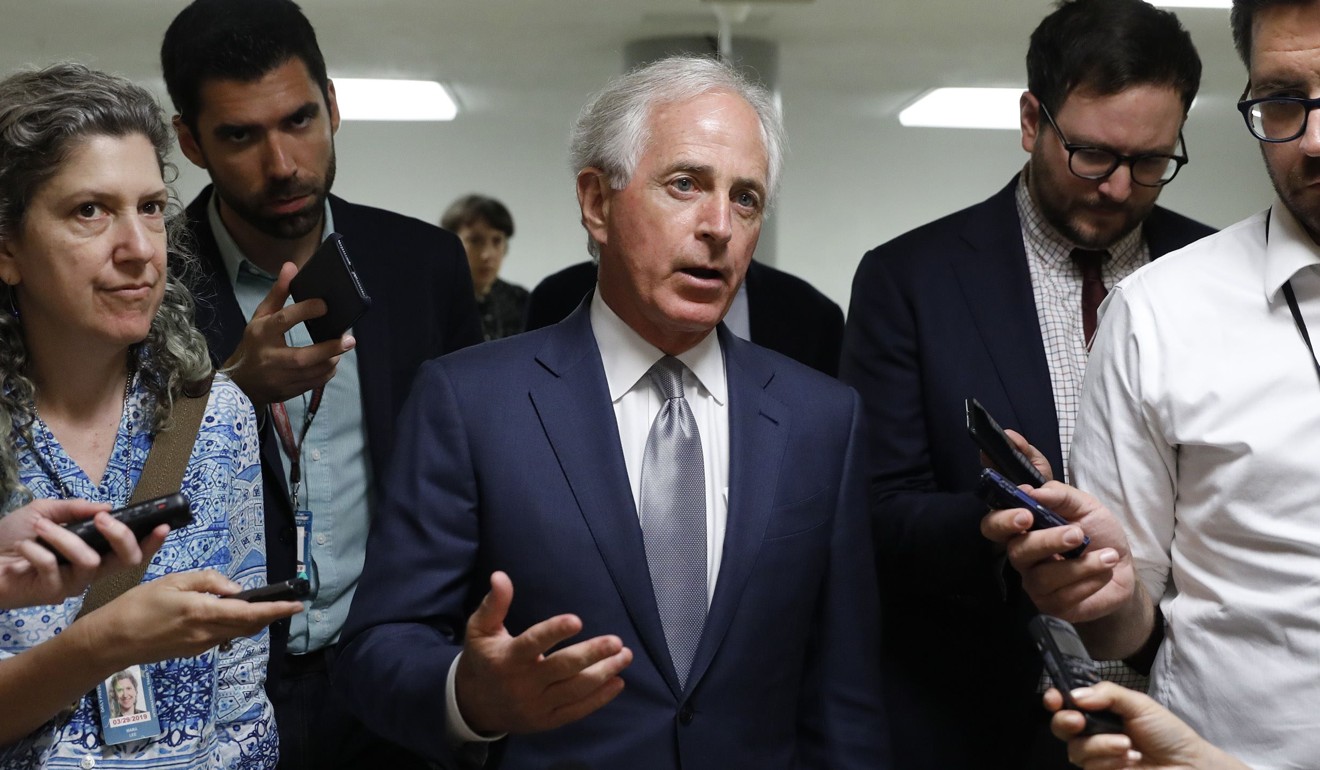
Donald Trump gets his way as US lifts ZTE ban, allowing company to continue despite senators’ opposition
The move lets ZTE again buy American parts, but a case that has set Donald Trump against Congress isn’t quite done yet
The US has lifted a nearly three-month-long ban on ZTE Corp at the urging of US President Donald Trump, removing sanctions that had crippled the Chinese telecommunications equipment manufacturer.
The removal of the ban by the US Commerce Department on Friday lets China’s second largest telecoms gear maker resume buying American-made components that are crucial to its products, saving it from almost certain closure. Trump has said the move is intended to help negotiations during the ongoing US-China trade war.
ZTE’s new management vows to uphold compliance as a top priority
But both the ZTE deal and Trump’s wider trade policies have faced opposition from Congress members on both sides of the aisle – highlighting the gap between the White House’s thinking and that of the wider Republican Party, and pitting the president against his own side.
In his announcement on Friday, Commerce Secretary Wilbur Ross promised that the company would continue to face scrutiny by US authorities, who previously slapped down the sanctions after the company dealt with both Iran and North Korea.
[No-one can say] where this is headed, nor what the plans are, nor what the strategy is. It seems to be a ‘wake up, ready, fire, aim’ strategy
“While we lifted the ban on ZTE, the department will remain vigilant as we closely monitor ZTE’s actions to ensure compliance with all US laws and regulations,” Ross said.
But opposition in Congress has not been mollified by Ross’s continued promises, or the US$1 billion fine levied on ZTE. Both the Senate and the House of Representatives have passed amendments in their versions of a defence appropriations bill to restore the ban, either in part or whole.
The two versions of the bills, including those amendments, are now being reconciled in committee, with a target deadline of the end of the month. The White House has previously said that it intends to intervene at this stage to encourage the wording to be changed to allow ZTE to operate.
On Thursday, a bipartisan group of six US senators made another effort to reinstate the ban, stating in a letter to the reconciling committee that ZTE, along with Huawei, another telecoms giant, “are beholden to the Chinese government and Communist Party, which provides the capacity for espionage and intellectual property theft, and therefore poses clear threats to the national security, people, and economy of the United States”.
ZTE isn’t the only area in which the Trump administration’s actions have caused friction with the Republican Party: lawmakers have also been alarmed at its decision to widen his trade war to include traditional American allies and trading partners.

Republicans, who are traditionally proponents of free markets, have been particularly unsettled by Trump’s application of punitive tariffs against Canada, Mexico and the European Union, especially because he has invoked the so-called Section 232 authority to enact those tariffs unilaterally on the basis of national security concerns.
Senator Bob Corker, the Tennessee Republican who chairs the Foreign Relations Committee, said Thursday that “the US has significant trade challenges when it comes to China”, but that “we should focus on building coalitions to confront long-standing threats, such as Chinese theft of intellectual property, instead of imposing 232 tariffs on our friends”.
Corker, who is retiring when his term expires at the end of this year, is not alone. On Wednesday, the Senate voted overwhelmingly 88-to-11 on a non-binding procedural measure asserting “a role for Congress” when Trump imposes tariffs in the name of national security.
US Senate demands a say in Trump’s trade war decisions
“Many members have been over to talk to the president about where this is headed,” Corker said.
“To my knowledge, not a single person is able to articulate where this is headed, nor what the plans are, nor what the strategy is. It seems to be a ‘wake up, ready, fire, aim’ strategy.”

The ZTE deal, which began in April when the Commerce Department banned the sale of any American components to the company for seven years, has been a prime example of the kind of inconsistent dealings with China that have led to vehement oppositions from Trump’s lawmakers.
The settlement ZTE reached with the US Commerce Department included a US$1 billion penalty, which the company paid last month, and a deposit of US$400 million to cover any possible future breaches in the future.
Ross said on Friday that “three interlocking elements – a suspended denial order, the US$400 million in escrow, and a compliance team selected by and answerable to the department – will allow the department to protect US national security”.
Which Chinese cities will be hit hardest by Trump’s trade fury?
The compliance coordinators will report to the Commerce Department’s Bureau of Industry and Security for 10 years, according to the statement.
They will monitor ZTE’s compliance with US export control laws. The denial order, which is now suspended, can be activated in the event of additional violations during the 10-year probationary period.
Also on Friday, ZTE said it expected to record a net loss in the first half of the year because of the US$1 billion fine it paid last month to have the ban lifted.

